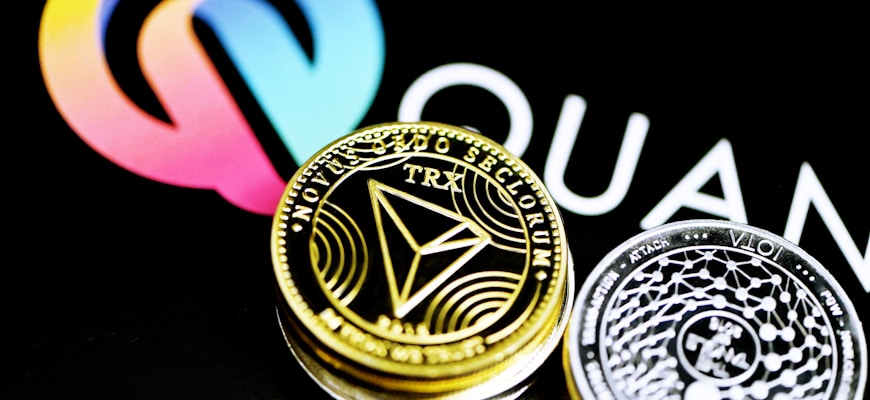The Latest in Decentralized Finance (DeFi) News

- Exploring the Impact of DeFi on Traditional Finance Institutions
- The Rise of DeFi Platforms and Their Role in the Financial Ecosystem
- Challenges and Opportunities in the DeFi Space
- Regulatory Developments Affecting DeFi Projects
- Investing in DeFi: Tips for Beginners
- The Future of DeFi: Predictions and Trends to Watch
Exploring the Impact of DeFi on Traditional Finance Institutions
Decentralized Finance (DeFi) has been making waves in the financial world, with its innovative approach to traditional banking services. One of the most significant impacts of DeFi on traditional finance institutions is the disruption it brings to their centralized model. DeFi allows for peer-to-peer transactions without the need for intermediaries, cutting out the middleman and reducing costs for users.
Furthermore, DeFi offers a higher level of transparency and security compared to traditional finance institutions. Smart contracts, which are at the core of DeFi protocols, ensure that transactions are executed automatically when specific conditions are met, eliminating the risk of human error or manipulation.
As DeFi continues to gain traction, traditional finance institutions are starting to take notice. Some are exploring how they can integrate DeFi principles into their existing systems to stay competitive in the rapidly evolving financial landscape. Others are looking at partnering with DeFi platforms to leverage their technology and reach a broader customer base.
Overall, the impact of DeFi on traditional finance institutions is undeniable. It is forcing them to adapt to a new reality where decentralization, transparency, and efficiency are paramount. Whether they choose to resist or embrace this change, one thing is clear – DeFi is here to stay, and it’s reshaping the future of finance as we know it.
The Rise of DeFi Platforms and Their Role in the Financial Ecosystem
Decentralized Finance (DeFi) platforms have been gaining significant traction in the financial ecosystem, offering innovative solutions and disrupting traditional financial systems. These platforms leverage blockchain technology to provide users with decentralized alternatives to traditional financial services.
One of the key drivers behind the rise of DeFi platforms is the increasing demand for financial inclusivity and accessibility. DeFi platforms allow users to access a wide range of financial services without the need for intermediaries, such as banks or financial institutions. This not only reduces costs but also eliminates barriers to entry for individuals who may not have access to traditional banking services.
Another important aspect of DeFi platforms is the concept of smart contracts. These self-executing contracts are coded on the blockchain and automatically enforce the terms of an agreement. This eliminates the need for intermediaries and provides users with a high degree of transparency and security.
As DeFi platforms continue to evolve and mature, they are playing an increasingly important role in the financial ecosystem. They are enabling new forms of financial transactions, such as decentralized lending and borrowing, decentralized exchanges, and yield farming. These platforms are also facilitating the creation of new financial products and services that were previously not possible within the traditional financial system.
Overall, the rise of DeFi platforms is reshaping the financial landscape, offering users more control over their finances and opening up new opportunities for innovation and growth. As the DeFi space continues to expand, it will be interesting to see how these platforms continue to transform the financial ecosystem and empower individuals around the world.
Challenges and Opportunities in the DeFi Space
Decentralized Finance (DeFi) presents a wide range of challenges and opportunities for investors and developers alike. As the industry continues to grow rapidly, it is essential to stay informed about the latest trends and developments in the space.
One of the main challenges in the DeFi space is the issue of security. With the increasing number of hacks and exploits targeting decentralized platforms, investors need to be cautious and conduct thorough research before investing in any DeFi project. Moreover, developers must implement robust security measures to protect users’ funds and data.
On the other hand, the DeFi space also offers numerous opportunities for innovation and growth. With the rise of decentralized lending, borrowing, and trading platforms, users can access financial services without the need for traditional intermediaries. This not only provides greater financial inclusion but also opens up new possibilities for developers to create innovative DeFi solutions.
Another key opportunity in the DeFi space is the potential for high returns on investment. With the volatile nature of cryptocurrencies and the ability to earn passive income through staking and liquidity provision, DeFi has attracted a large number of investors looking to capitalize on these opportunities. However, it is important to note that high returns also come with high risks, and investors should be prepared for market fluctuations.
Regulatory Developments Affecting DeFi Projects
In recent times, there have been significant regulatory developments that are impacting Decentralized Finance (DeFi) projects across the board. It is essential for DeFi projects to stay abreast of these changes to remain compliant and avoid potential legal issues.
One notable development is the increased scrutiny from regulatory bodies such as the Securities and Exchange Commission (SEC) and the Commodity Futures Trading Commission (CFTC). These agencies are taking a closer look at DeFi projects to ensure they are following securities laws and regulations. This has led to some projects facing enforcement actions or being forced to make adjustments to their operations.
Another key issue affecting DeFi projects is the debate around Know Your Customer (KYC) and Anti-Money Laundering (AML) regulations. Some regulators argue that DeFi projects should implement these measures to prevent illicit activities, while others believe that it goes against the core principles of decentralization. Finding a balance between compliance and decentralization is crucial for the future of DeFi.
Moreover, there is a growing concern about the potential for regulatory arbitrage in the DeFi space. Some projects may try to avoid regulations by operating in jurisdictions with lax oversight, which could lead to increased risks for investors and the broader ecosystem. Regulators are keeping a close eye on these practices and are exploring ways to close any loopholes.
Overall, the regulatory landscape for DeFi projects is evolving rapidly, and it is essential for project teams to stay informed and engage with regulators to ensure a smooth compliance process. By navigating these challenges effectively, DeFi projects can continue to innovate and grow in a sustainable manner.
Investing in DeFi: Tips for Beginners
When it comes to **investing** in **DeFi**, beginners may feel overwhelmed by the complex nature of decentralized finance. However, with the right tips and guidance, anyone can navigate this exciting **investment** opportunity. Here are some key tips for beginners looking to get started in the world of **DeFi**:
- 1. **Research** is key: Before jumping into **DeFi** **investments**, take the time to **research** different projects and platforms. Understand the **technology** behind **DeFi** and familiarize yourself with the risks and rewards.
- 2. Start small: As a beginner, it’s important to start with a small **investment** to test the waters. Only **invest** what you can afford to lose, as **DeFi** **investments** can be volatile.
- 3. Diversify your portfolio: Spread your **investments** across different **DeFi** projects to minimize risk. Diversification is key to **investment** success in the **DeFi** space.
- 4. Stay updated: The **DeFi** space is constantly evolving, with new projects and **technologies** emerging every day. Stay updated on the latest **news** and trends to make informed **investment** decisions.
- 5. Use secure platforms: When **investing** in **DeFi**, make sure to use secure platforms and **wallets** to protect your **assets**. Security is paramount in the **DeFi** space.
The Future of DeFi: Predictions and Trends to Watch
The future of decentralized finance (DeFi) is full of exciting developments and innovations that are set to revolutionize the financial industry. As we look ahead, there are several predictions and trends to watch that will shape the DeFi landscape in the coming years.
- 1. Increased adoption: DeFi has been gaining momentum, and we can expect to see even more widespread adoption in the future. As more people become aware of the benefits of decentralized finance, we will likely see a surge in the number of users and projects in the space.
- 2. Regulation: With the growing popularity of DeFi, regulators around the world are starting to take notice. It is expected that there will be increased scrutiny and regulation of DeFi projects to protect consumers and ensure the stability of the financial system.
- 3. Interoperability: One of the key challenges facing DeFi is interoperability between different blockchains and protocols. In the future, we can expect to see more solutions that enable seamless communication and transactions between various DeFi platforms.
- 4. Innovation: DeFi is a hotbed of innovation, with new projects and technologies emerging all the time. In the future, we can expect to see even more groundbreaking ideas and solutions that push the boundaries of what is possible in decentralized finance.
- 5. Scalability: As DeFi continues to grow, scalability will become an increasingly important issue. Developers are working on solutions to improve the scalability of DeFi platforms, such as layer 2 solutions and sharding, which will help to support the growing demand for decentralized financial services.
Overall, the future of DeFi is bright, with exciting developments on the horizon that will continue to shape the way we think about finance. By staying informed and keeping an eye on these predictions and trends, you can stay ahead of the curve and take advantage of the opportunities that decentralized finance has to offer.



